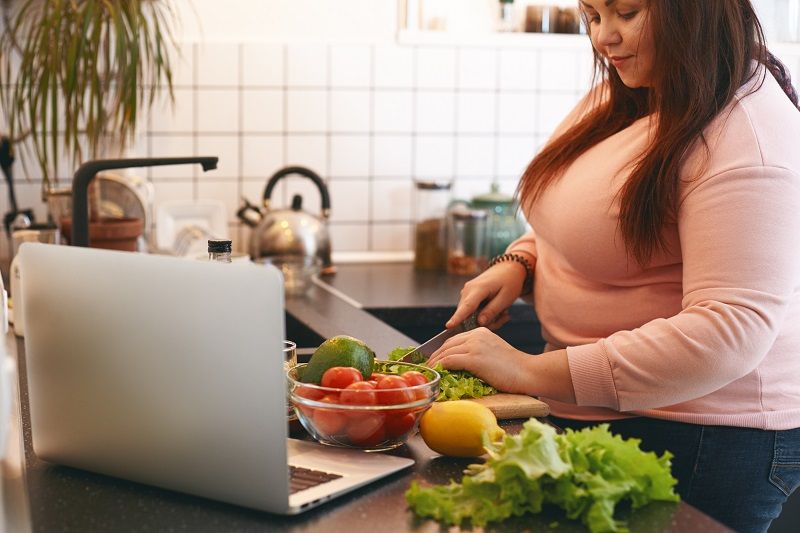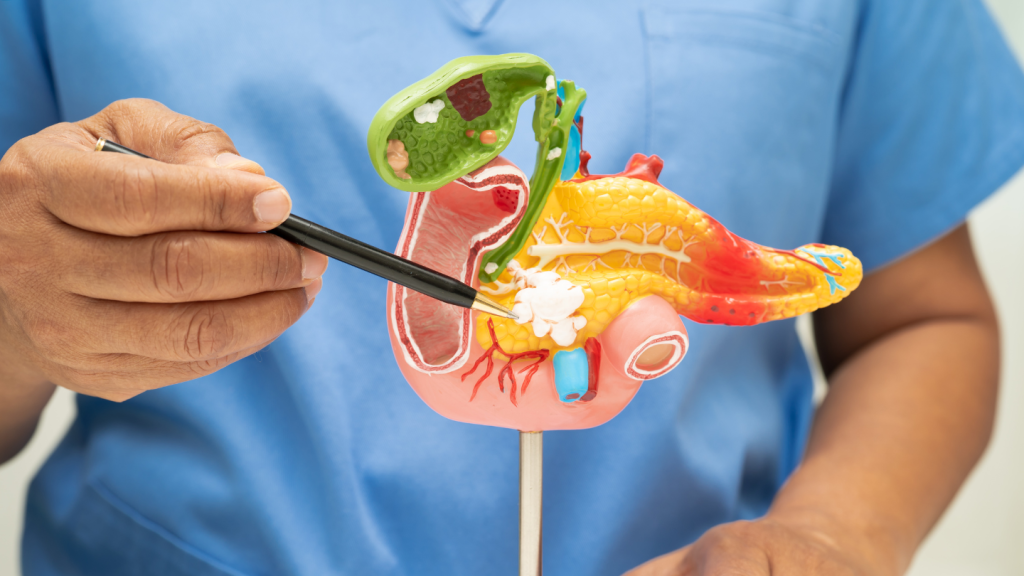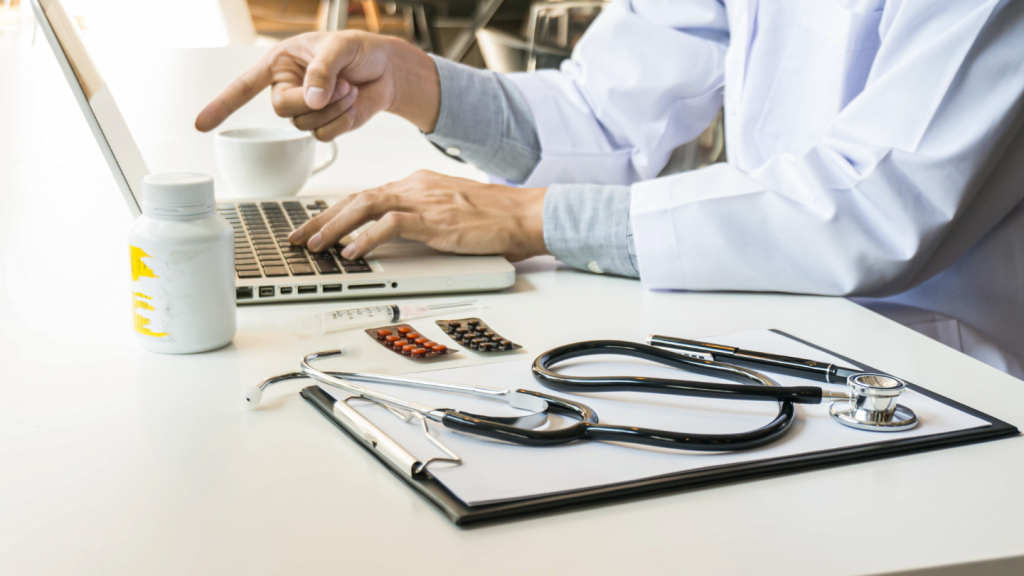
What To Eat After Gallbladder Surgery & What To Avoid
Gallbladder removal, also called cholecystectomy, is a common procedure that can improve digestive health, but it requires dietary adjustments. Many patients want to know what to eat after gallbladder surgery and what foods might cause discomfort. Since the gallbladder helps with fat digestion, removing it means your digestive system has to adapt. The right post gallbladder surgery diet makes recovery smoother and helps prevent symptoms like diarrhea, bloating, or stomach pain.
How Gallbladder Removal Affects Digestion
The gallbladder stores bile, which breaks down fats. Without it, bile flows directly into the small intestine in smaller amounts. This change can make it harder to digest fatty or greasy foods, especially in the early weeks after surgery. A bland diet for gallbladder removal during recovery allows your digestive system to adjust without being overwhelmed and supports a steady healing timeline.
What To Eat After Gallbladder Surgery
The first step in recovery is choosing foods that are easy to digest and supportive of healing. Patients often ask what to eat after gallbladder surgery in the first days versus weeks later.
Lean Proteins
Chicken, turkey, white fish, and beans are easier to digest and help repair tissues. Avoid frying, stick with baking, grilling, or steaming. Early focus on lean protein also aligns with guidance from what foods can you not eat after gastric sleeve surgery, reinforcing how low-fat, high-protein choices protect digestion.
Fruits and Vegetables
Cooked vegetables such as carrots, green beans, and zucchini are less irritating than raw ones in the early weeks. Applesauce after gallbladder removal is a gentle, fiber-rich option that can soothe digestion.
Whole Grains and Starches
Oatmeal, rice, and whole wheat toast are tolerated well. Can I eat toast after gallbladder surgery is a common question, and the answer is yes, especially plain, lightly toasted bread without butter. Including these grains complements long-term nutritional habits and foods to avoid after your gastric bypass when managing fat intake.
Low-Fat Dairy and Healthy Alternatives
Low-fat yogurt, skim milk, or almond milk can be safe in moderation. They provide protein and calcium without excess fat.
Hydration
Plenty of water, herbal teas, and clear broths are essential to prevent dehydration and help digestion. Patients recovering from minimally invasive surgery can also benefit from understanding the benefits of laparoscopic gallbladder surgery when planning fluid-rich meals that aid recovery.
Foods to Avoid After Gallbladder Surgery

While your digestive system heals, it’s best to avoid foods that may cause bloating, diarrhea, or discomfort.
- Fried foods: Can I eat fries after gallbladder removal? It’s not recommended, especially in the first weeks, because they are high in fat.
- Chips and processed snacks: Can I eat potato chips after gallbladder surgery? These are greasy and hard to digest.
- High-fat dairy: Cheese, butter, and cream can trigger digestive upset.
- Fatty meats: Bacon, sausage, and ribs should be avoided.
- Sweets and sugary foods: They may increase diarrhea and discomfort.
Movie snacks also come up frequently, can I eat ritz crackers after gallbladder surgery? Plain crackers can be tolerated in small amounts if they are low in fat, but they shouldn’t replace nutrient-rich foods.
Post-Gallbladder Surgery Diet Timeline
The recovery timeline helps answer how long after gallbladder surgery can I eat normally. For most patients, the process is gradual.
- First few days: Stick to clear liquids like broth, gelatin, and herbal teas.
- Week 1–2: Introduce bland foods such as rice, applesauce, toast, bananas, and skinless chicken.
- Week 3–4: Slowly add more variety, including cooked vegetables, oatmeal, and soft proteins.
- After 1 month: Reintroduce small amounts of healthy fats, whole grains, and more solid foods. By this point, many patients feel comfortable eating a balanced diet.
Many patients feel comfortable eating a balanced diet and can revisit options like can you eat nuts after gallbladder surgery to add healthy fats carefully.
Can You Eat Nuts After Gallbladder Surgery?
Nuts are nutrient-dense and heart-healthy, but patients often ask can you eat nuts after gallbladder surgery. The answer is yes, but only after a few weeks, and in small amounts. Since nuts are high in fat, they may cause discomfort if introduced too early. Waiting until your digestive system adjusts helps reduce bloating or diarrhea.
Can I Eat Pasta After Gallbladder Removal?
Another common concern is can I eat pasta after gallbladder removal. Plain pasta is generally well tolerated once soft foods are allowed, but creamy or cheesy sauces should be avoided. Opt for whole wheat or vegetable-based pasta in small portions to support digestion.
Managing Digestive Side Effects
Some patients experience diarrhea or cramping after surgery. The right foods can help reduce these symptoms. A bland diet for gallbladder removal that includes rice, applesauce, bananas, and plain toast helps calm the digestive system. Eating smaller, more frequent meals instead of large portions also prevents overwhelming the intestines.
Lifestyle Tips for a Smoother Recovery

- Eat slowly and chew thoroughly to make digestion easier.
- Avoid lying down right after meals to reduce reflux or bloating.
- Keep a food journal to identify foods that trigger discomfort.
- Focus on nutrient-dense meals that supply protein, vitamins, and fiber.
Final Thoughts
Knowing what to eat after gallbladder surgery helps speed recovery and reduces the risk of digestive issues. A post-gallbladder surgery diet focused on lean proteins, fruits, vegetables, whole grains, and low-fat foods provides healing support, while fried, fatty, and processed foods should be avoided. Over time, most patients can return to a balanced diet, though moderation remains important.
Every patient’s recovery is unique, and professional guidance ensures safe progress. Ascension Saint Agnes Bariatric Surgery provides Laparoscopic Gallbladder Surgery in Baltimore, helping patients manage recovery, avoid complications, and build long-term healthy eating habits. We also offer various bariatric procedures, including Roux-en-Y gastric bypass, sleeve gastrectomy, robotic surgery, and the gastric balloon. We also provide upper endoscopy for digestive assessments. Contact us today to begin your journey to better health.
Frequently Asked Questions
How soon can I eat after gallbladder surgery?
Patients usually start with clear liquids within the first 24 hours after surgery. Soft, low-fat foods such as rice, applesauce, and skinless chicken are introduced over the next one to two weeks as digestion improves.
What are the best foods to eat after gallbladder surgery?
Lean proteins, cooked vegetables, oatmeal, bananas, and whole-grain toast are ideal choices. These foods are gentle on the digestive system and help prevent bloating or diarrhea during recovery.
What foods should I avoid after gallbladder surgery?
Fried foods, fatty meats, high-fat dairy products, processed snacks, and sugary desserts should be avoided. These foods are difficult to digest and can cause discomfort, bloating, or diarrhea.
Can I eat nuts or pasta after gallbladder removal?
Yes, but with moderation and timing. Nuts should only be added a few weeks after surgery in small portions. Plain or whole-grain pasta is generally safe once soft foods are tolerated, but creamy sauces should be avoided.
How long after gallbladder surgery can I eat normally again?
Most patients can return to a balanced diet within four to six weeks, depending on how their digestion adjusts. Gradual reintroduction of healthy fats and nutrient-rich foods helps ensure long-term comfort and stability.